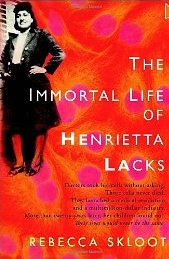October 29th, 2011 by Linda Burke-Galloway, M.D. in Better Health Network
No Comments »

 Infertility or the inability to have a baby can be devastating and affects approximately 10 percent of the female population. There are many conditions that prevent women from having children including Mayer Rokitansky Kuster Hauser syndrome (or MKHS). MKHS is a rare disorder that affects a woman’s ability to conceive. At present, for every 10,000 women, only 1 to 2 will be affected. Both Sara Ottoson of Sweden and Melina Arnold of Australia have this condition. MKHS is characterized by the absence of a vagina and part of the cervix. Patients with this condition have normal breast development and functioning ovaries. Genetically, they also have female or double X-chromosomes and look like normal women. The problem comes to light during adolescence when a teen fails to have a period. The condition is also known as Vaginal Agenesis because they are born without a true vagina, a problem that can be corrected through surgical and non-surgical procedures. Unfortunately, they are unable to have children and usually Read more »
Infertility or the inability to have a baby can be devastating and affects approximately 10 percent of the female population. There are many conditions that prevent women from having children including Mayer Rokitansky Kuster Hauser syndrome (or MKHS). MKHS is a rare disorder that affects a woman’s ability to conceive. At present, for every 10,000 women, only 1 to 2 will be affected. Both Sara Ottoson of Sweden and Melina Arnold of Australia have this condition. MKHS is characterized by the absence of a vagina and part of the cervix. Patients with this condition have normal breast development and functioning ovaries. Genetically, they also have female or double X-chromosomes and look like normal women. The problem comes to light during adolescence when a teen fails to have a period. The condition is also known as Vaginal Agenesis because they are born without a true vagina, a problem that can be corrected through surgical and non-surgical procedures. Unfortunately, they are unable to have children and usually Read more »
*This blog post was originally published at Dr. Linda Burke-Galloway*
September 20th, 2011 by Medgadget in News
No Comments »

 One of the major areas of research in the medical device industry is how to effectively deliver drugs to their target sites. The gold standard for systemic delivery of drugs is an intravenous (IV) injection, though it is not a great way to deliver meds that address chronic needs because of the pain and inconvenience. There have been exciting developments in transdermal delivery, such as the nicotine and birth control patches, though certain molecules and drugs do not easily diffuse through the epidermal layer to reach the more vascularized layers below.
One of the major areas of research in the medical device industry is how to effectively deliver drugs to their target sites. The gold standard for systemic delivery of drugs is an intravenous (IV) injection, though it is not a great way to deliver meds that address chronic needs because of the pain and inconvenience. There have been exciting developments in transdermal delivery, such as the nicotine and birth control patches, though certain molecules and drugs do not easily diffuse through the epidermal layer to reach the more vascularized layers below.
One potential solution is to Read more »
*This blog post was originally published at Medgadget*
September 16th, 2011 by Medgadget in News
No Comments »

 Cook Medical has announced the launch of its new Otrieva Tapered Ovum Aspiration Needle for ovum collection in women pursuing in vitro fertilization. The company claims its new needle’s reduced diameter will result in reduced pain and bleeding during the procedure compared to existing solutions, while still providing precise collection.
Cook Medical has announced the launch of its new Otrieva Tapered Ovum Aspiration Needle for ovum collection in women pursuing in vitro fertilization. The company claims its new needle’s reduced diameter will result in reduced pain and bleeding during the procedure compared to existing solutions, while still providing precise collection.
The Otrieva also makes use of Cook’s EchoTip technology to further enhance safety by improving the needle’s ultrasound visibility.
From the press release:
The Otrieva needle, developed exclusively by Cook, has Read more »
*This blog post was originally published at Medgadget*
February 10th, 2011 by Medgadget in Better Health Network, Research
No Comments »

 Following from the somewhat common sense idea that women who were less stressed during in vitro fertilization and embryo transfer (IVF-ET) had better outcomes, the journal Fertility and Sterility published a study out of Israel that claims “medical clowning” improved pregnancy rates compared to a group not exposed to a clown on the day of implantation.
Following from the somewhat common sense idea that women who were less stressed during in vitro fertilization and embryo transfer (IVF-ET) had better outcomes, the journal Fertility and Sterility published a study out of Israel that claims “medical clowning” improved pregnancy rates compared to a group not exposed to a clown on the day of implantation.
From the abstract:
This experimental prospective quasi-randomized study examining the impact of a medical clowning encounter after ET after IVF found that the pregnancy rate in the intervention group was 36.4%, compared with 20.2% in the control group (adjusted odds ratio, 2.67; 95% confidence interval, 1.36–5.24). Medical clowning as an adjunct to IVF-ET may have a beneficial effect on pregnancy rates and deserves further investigation.
In the methods section, the researchers describe the study design. For the intervention group (n=110) a “professional medical clown” visited the patient immediately after the procedure for about 15 minutes and performed the same routine including “jokes, tricks, and magic” while dressed as a chef.
While the study itself only uses one routine, presumably similar effects could be experienced by a patient bringing in a personal media device and watching something they know will amuse them right after their own procedure. Hopefully, no need to bring your own clown if the office won’t provide one for you. Read more »
*This blog post was originally published at Medgadget*
January 5th, 2011 by Toni Brayer, M.D. in Better Health Network, Book Reviews, Opinion, Research
No Comments »

 If you like science, true history, and an engaging story, pick up the new book by journalist Rebecca Skloot, “The Immortal Life of Henrietta Lacks” and prepare for a great read. I knew nothing about the young black woman whose cells were taken back in 1951 by a scientist at Johns Hopkins Hospital and how those cells have revolutionized modern cell biology and research.
If you like science, true history, and an engaging story, pick up the new book by journalist Rebecca Skloot, “The Immortal Life of Henrietta Lacks” and prepare for a great read. I knew nothing about the young black woman whose cells were taken back in 1951 by a scientist at Johns Hopkins Hospital and how those cells have revolutionized modern cell biology and research.
The HeLa (named after HEnrietta LAcks) cells were taken as she lay dying on the “colored” ward at Johns Hopkins Hospital of aggressive cervical cancer at age 30. Everyone who studies basic cell biology has heard of HeLa cells because they were the first human cell line to be successfully grown in culture and they are alive today. HeLa cells were sent to researchers all across the globe and have been used to develop the polio vaccine, viruses, cloning, gene mapping and in-vitro fertilization. Billions of the same immortal HeLa cells are used by researchers fighting cancer, multiple sclerosis, heart disease, and diabetes. Read more »
*This blog post was originally published at EverythingHealth*
 Infertility or the inability to have a baby can be devastating and affects approximately 10 percent of the female population. There are many conditions that prevent women from having children including Mayer Rokitansky Kuster Hauser syndrome (or MKHS). MKHS is a rare disorder that affects a woman’s ability to conceive. At present, for every 10,000 women, only 1 to 2 will be affected. Both Sara Ottoson of Sweden and Melina Arnold of Australia have this condition. MKHS is characterized by the absence of a vagina and part of the cervix. Patients with this condition have normal breast development and functioning ovaries. Genetically, they also have female or double X-chromosomes and look like normal women. The problem comes to light during adolescence when a teen fails to have a period. The condition is also known as Vaginal Agenesis because they are born without a true vagina, a problem that can be corrected through surgical and non-surgical procedures. Unfortunately, they are unable to have children and usually Read more »
Infertility or the inability to have a baby can be devastating and affects approximately 10 percent of the female population. There are many conditions that prevent women from having children including Mayer Rokitansky Kuster Hauser syndrome (or MKHS). MKHS is a rare disorder that affects a woman’s ability to conceive. At present, for every 10,000 women, only 1 to 2 will be affected. Both Sara Ottoson of Sweden and Melina Arnold of Australia have this condition. MKHS is characterized by the absence of a vagina and part of the cervix. Patients with this condition have normal breast development and functioning ovaries. Genetically, they also have female or double X-chromosomes and look like normal women. The problem comes to light during adolescence when a teen fails to have a period. The condition is also known as Vaginal Agenesis because they are born without a true vagina, a problem that can be corrected through surgical and non-surgical procedures. Unfortunately, they are unable to have children and usually Read more »



 One of the major areas of research in the medical device industry is how to effectively deliver drugs to their target sites. The gold standard for systemic delivery of drugs is an intravenous (IV) injection, though it is not a great way to deliver meds that address chronic needs because of the pain and inconvenience. There have been exciting developments in transdermal delivery, such as the nicotine and birth control patches, though certain molecules and drugs do not easily diffuse through the epidermal layer to reach the more vascularized layers below.
One of the major areas of research in the medical device industry is how to effectively deliver drugs to their target sites. The gold standard for systemic delivery of drugs is an intravenous (IV) injection, though it is not a great way to deliver meds that address chronic needs because of the pain and inconvenience. There have been exciting developments in transdermal delivery, such as the nicotine and birth control patches, though certain molecules and drugs do not easily diffuse through the epidermal layer to reach the more vascularized layers below. Cook Medical has announced the launch of its new Otrieva Tapered Ovum Aspiration Needle for ovum collection in women pursuing in vitro fertilization. The company claims its new needle’s reduced diameter will result in reduced pain and bleeding during the procedure compared to existing solutions, while still providing precise collection.
Cook Medical has announced the launch of its new Otrieva Tapered Ovum Aspiration Needle for ovum collection in women pursuing in vitro fertilization. The company claims its new needle’s reduced diameter will result in reduced pain and bleeding during the procedure compared to existing solutions, while still providing precise collection.










